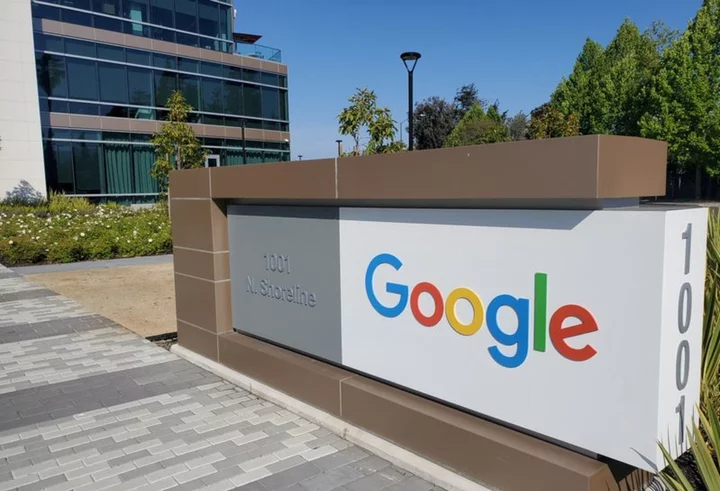
Mega-cap firm valuations fall amid rising rates, tech earnings concerns
Most global mega-cap stocks continued their slide in October, hit by the rise in U.S. interest rates and
1970-01-01 08:00
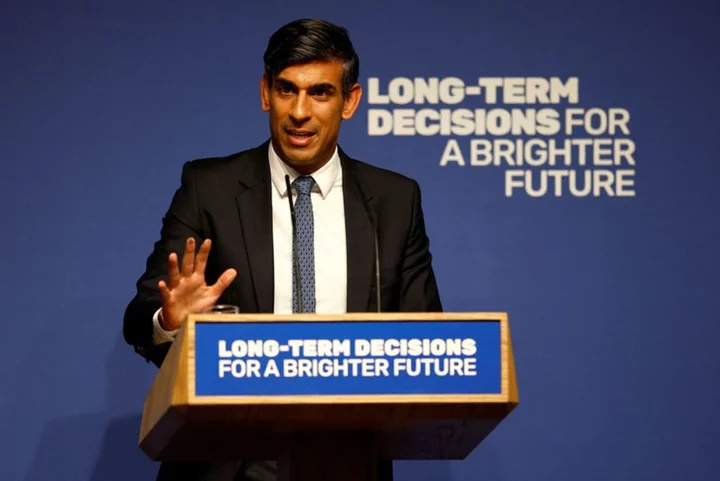
Britain brings together political and tech leaders to talk AI
By Paul Sandle and Martin Coulter BLETCHLEY PARK, England (Reuters) -Britain will convene governments, academia and companies working at the
1970-01-01 08:00
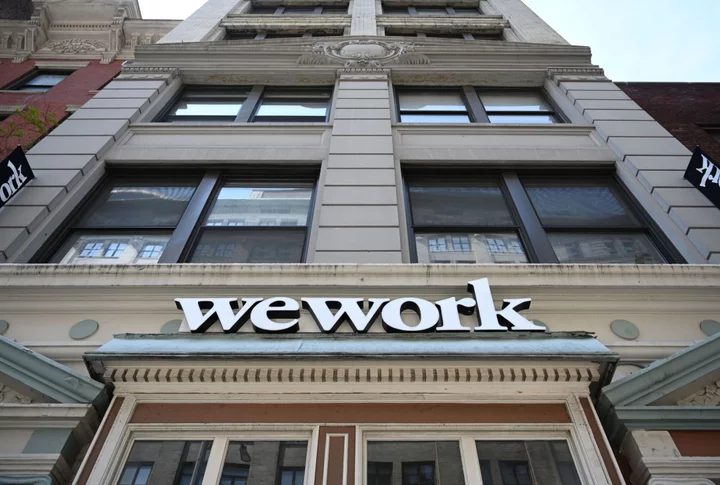
WeWork Shares Sink After Report It Plans to File for Bankruptcy
WeWork Inc. shares fell as much as 42% in premarket trading following a report in the Wall Street
1970-01-01 08:00
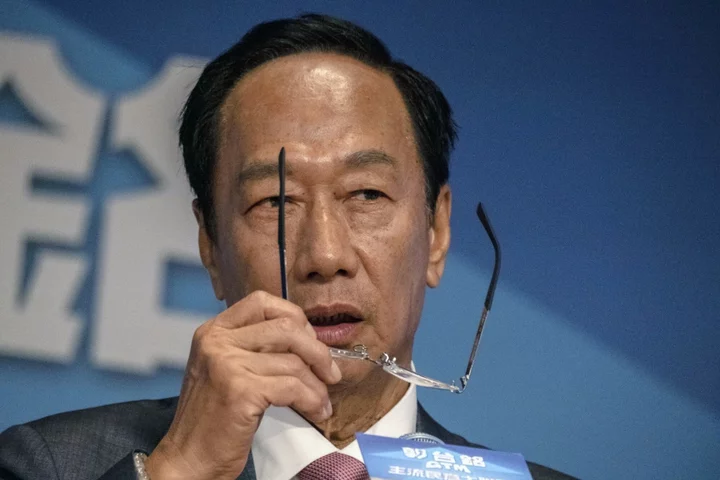
Taiwan Probes Alleged Election Graft Linked to Foxconn’s Gou
Taiwan is investigating suspected bribes connected to Foxconn Technology Group founder Terry Gou’s presidential campaign, as the billionaire
1970-01-01 08:00
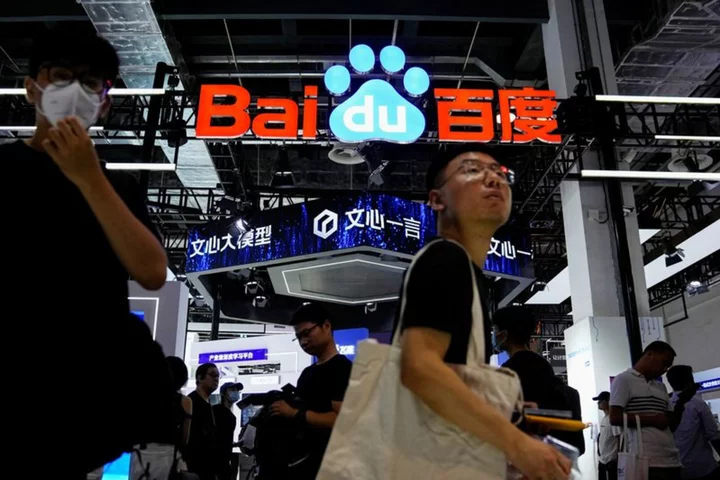
Baidu launches paid version of ChatGPT-like Ernie Bot
BEIJING Chinese search engine giant Baidu launched on Wednesday a paid version of its ChatGPT-like product Ernie bot,
1970-01-01 08:00
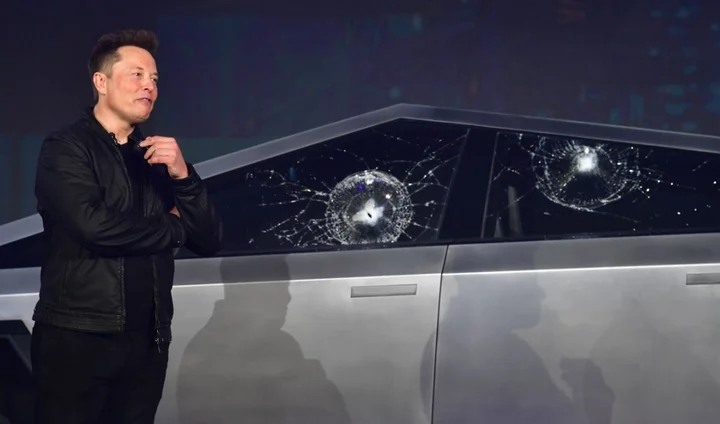
Tesla to offer ‘beast mode’ version of Cybertruck with bulletproof panels
Tesla will offer a “beast mode version” for its much anticipated Cybertruck once it is rolled out by the end of this year, Elon Musk has said. In his latest interview with Joe Rogan on Tuesday, Mr Musk expressed hope that the “beast mode” version of the vehicle will be able to go from zero to 60 mph in under three seconds. The multibillionaire owner of X/Twitter had earlier said the Cybertruck will also get “performance” and “kicks ass” versions. However, Mr Musk did not elaborate on the other features that will be included in these versions of the electric vehicle (EV). He also reiterated that the Cybertruck, expected to launch in November, will have bulletproof steel panels and an option for people to purchase bulletproof glass. “You can make anything bulletproof if you want, but the glass has to be very thick to be bulletproof, so it can’t go up and down,” Mr Musk said. During the interview, Mr Rogan tried shooting an arrow at the vehicle’s stainless steel body. The projectile caused a small dent on the side of the Cybertruck model. Mr Musk said upcoming demonstrations will show the Cybertruck is bulletproof. The Tesla titan said one demonstration will have the vehicle being shot at with a Tommy gun, a 45mm shotgun and a 9mm gun. “Trucks are supposed to be tough, right?” he said. The bulletproof nature of the truck, dubbed “an armoured personal carrier from the future”, has been the subject of intense hype ever since it was unveiled. Mr Musk’s first demonstration of the toughness of the Cybertruck in 2019 had become a misfire as the window of the vehicle immediately smashed after he invited an audience member to throw a small metal ball at it. “Oh my f***ing god. Well, maybe that was a little too hard. It didn’t go through, so that’s a plus... room for improvement,” Mr Musk exclaimed, later adding on social media that prior testing before the event had compromised the window. “Sledgehammer impact on door cracked base of glass, which is why steel ball didn’t bounce off. Should have done steel ball on window, *then* sledgehammer the door,” the Tesla chief had said. Last month, Mr Musk dampened hopes that the Cybertruck will revive profits for the company in the near future. He announced in an earnings call that it will take at least 18 months for the truck to become profitable. “There will be enormous challenges in reaching volume production with Cybertruck and making the Cybertruck cash flow positive,” the Tesla titan told investors and analysts. “The blood, sweat, and tears that will be required to achieve that is just staggering,” he said. Read More Kamala Harris arrives in the UK ahead of AI safety summit X now valued at $19bn – less than half of what Elon Musk paid for it Elon Musk slammed by Israel for offering to send Starlink to Gaza Elon Musk says X posts with misinformation are ‘ineligible for revenue share’ Twitter adds video calling – and lets strangers ring you Elon Musk was ‘almost in tears’ on Tesla earnings call, analyst claims
1970-01-01 08:00
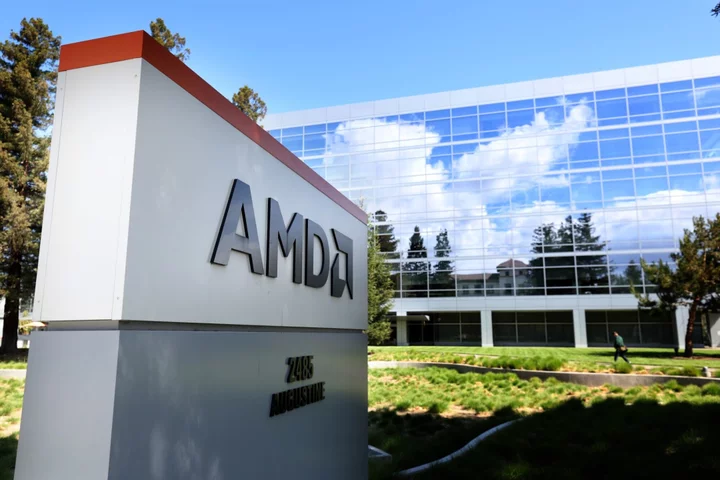
AMD’s AI Optimism Helps Investors Look Past Tepid Forecast
Advanced Micro Devices Inc. said a new AI chip will generate $2 billion in sales next year, fueling
1970-01-01 08:00

Kamala Harris arrives in the UK ahead of AI safety summit
US Vice President Kamala Harris has arrived in the UK ahead of attending Rishi Sunak’s summit focused on the safe use of artificial intelligence (AI). Ms Harris touched down at Stansted Airport on Tuesday evening with her husband Second Gentleman Douglas Emhoff for the summit. She will represent the US at Bletchley Park, near Milton Keynes, on Wednesday and Thursday in place of President Joe Biden. French President Emmanuel Macron will also not be in attendance, whilst Canadian Prime Minister Justin Trudeau and German Chancellor Olaf Scholz are also believed to be unlikely to show up. But Downing Street denied on Monday that the summit was being snubbed by world leaders. Elon Musk, the Tesla CEO and owner of the social media site X, will attend and join Mr Sunak for a live interview after the summit closes. The Prime Minister hopes the summit on AI safety will cement the UK’s status as a leading world player in the cutting-edge technology. Mr Sunak also said last week that mitigating the risk of extinction because of AI should be a global priority alongside pandemics and nuclear war. It comes as Mr Biden signed an executive order on AI on Monday, and said the technology was driving change at “warp speed” and carries tremendous potential as well as perils. The order seeks to steer how AI is developed so that companies can profit without putting public safety in jeopardy. Using the Defence Production Act, it requires leading AI developers to share safety test results and other information with the government.
1970-01-01 08:00

UN AI report to close gaps in government responses -tech envoy
By Supantha Mukherjee STOCKHOLM An interim artificial intelligence report by the United Nations will lead governments and the
1970-01-01 08:00
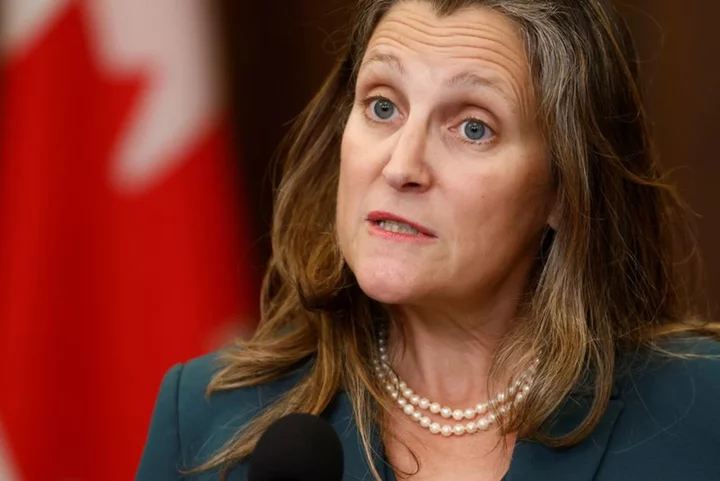
Canada optimistic about digital services tax agreement with US
OTTAWA Canadian Finance Minister Chrystia Freeland said on Tuesday she was cautiously optimistic about settling a dispute with
1970-01-01 08:00
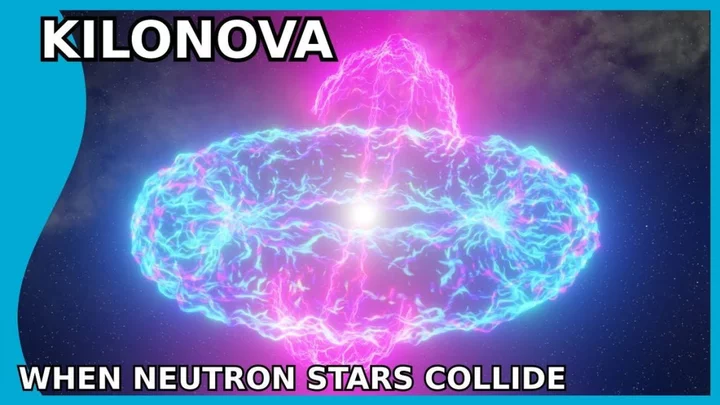
Scientists believe close kilonova explosion could threaten all life on Earth
Scientists have worked out how close a neutron star collision would have to be to threaten all life on Earth, in a not-remotely-terrifying new study. The event, known as a kilonova, is among the most powerful and explosive in the known universe. It’s not quite as bright as a supernova – but we should still keep our distance. Haille Perkins, team leader and a scientist at the University of Illinois Urbana-Champaign, told Space.com: “We found that if a neutron star merger were to occur within around 36 light-years of Earth, the resulting radiation could cause an extinction-level event.” That’s about 212 trillion miles – which seems like quite a large danger zone. But we need not worry, apparently. Kilonovae are extremely rare and difficult to spot, because they happen so quickly. Scientists, including those from the University of Warwick, recently managed to observe one by using the James Webb telescope. The explosion first produces a blast of gamma rays which lasts for just seconds. If we got caught in one of those, it would fry us all rather quickly. That’s pretty unlikely because they go in two thin lines out from the centre of the blast. They also cause an afterglow of X-ray emissions in the surrounding dust and particles. If we’re within 16.3 light years of those, we’d be in trouble. But the worst bit is the cosmic rays (of course!) – energetic charged particles spreading out from the explosion in a bubble. If these hit Earth, they would strip the ozone layer and leave us vulnerable to ultraviolet rays for several thousand years. That would be a bummer because, again, we’d all die. Fortunately, kilonovae are so rare that we’re more likely to get hit by an asteroid, added Perkins. She said: “There are several other more common events like solar flares, asteroid impacts, and supernova explosions that have a better chance of being harmful.” That’s good then. New kilonova discoveries In the most recent kilonova, it was the gamma rays that alerted the astronomers to the fact something big was going down. Then, they got in touch with various telescopes and detectors to ask them to focus on the bit of the sky where the burst had come from, and bingo: kilonova. Here's what it looked like on the JWT's feed. One of the major discoveries from this one is that kilonovae produce an element called tellurium, a relatively rare element on Earth. They also worked out where the two neutron stars came from: a spiral galaxy about 120,000 light years away from the location of the final explosion. That’s about the diameter of the Milky Way, and just a little further away than the mere 36 light year danger zone, then. But it’s food for thought nonetheless, eh? How to join the indy100's free WhatsApp channel Sign up to our free indy100 weekly newsletter Have your say in our news democracy. Click the upvote icon at the top of the page to help raise this article through the indy100 rankings.
1970-01-01 08:00
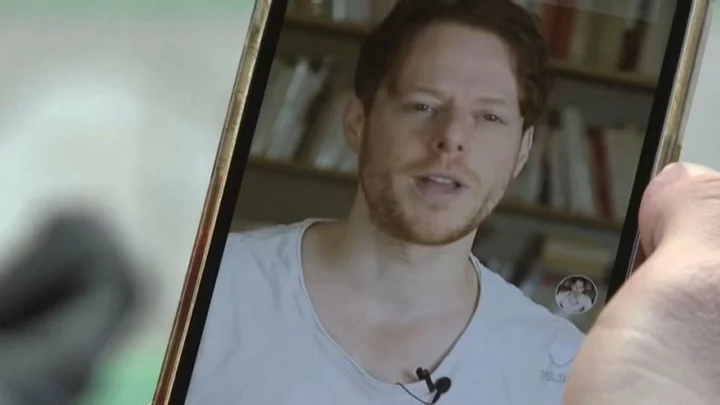
Scientist claims that humans have ‘no free will’ after decades of research
Human beings are fascinating creatures and one of the oldest philosophical debates is over whether people truly have free will or not. For millennia, scientists have debated over whether free will is simply an illusion of the mind and is a concept that doesn’t even exist, or, if our species naturally possess it. Some experts, such as the philosopher Bernardo Kastrup, argue that we do have free will. He defined it as existing “if our choices are determined by that which we experientially identify with”. Kastrup claimed that his “tastes and preferences” are “consciously felt by” him, thus the choices he makes are “determined by these felt tastes and preferences”. Essentially, Kastrup argues, we are able to choose what action to perform and this gives humans a level of free will. On the other hand, neurobiologist Robert Sapolsky from Stanford University believes humans don’t have any free will, after studying the subject for “decades”. In his book Determined: A Science of Life Without Free Will, Sapolsky argues that almost all of our behaviour as humans is beyond our own conscious control. He argued: “The world is really screwed up and made much, much more unfair by the fact that we reward people and punish people for things they have no control over. “We’ve got no free will. Stop attributing stuff to us that isn’t there.” Sapolsky believes that behaviour that we believe originates from free will is actually related to your environment, body, upbringing and genes. Speaking on the CultureLab podcast by New Scientist, Sapolsky explained: “In terms of my orientation, my basic approach is you look at a behaviour and someone has just done something that’s wonderful or awful or ambiguously in-between or in the eyes of the beholder, but some behaviour has happened, and you ask, 'Why did that occur?' and you’re asking a whole hierarchy of questions.” He continued explaining that the prompts to our behaviour could include, “which neurons did what, 10 milliseconds before” and may even originate from “this morning’s hormone levels” and the impact this has on your sensitivity levels in the brain. Additionally, behaviour, he argues can determined by prior trauma and even go back to the “childhood and foetal environment” and our individual genes. To summarise, he argued: “If you’re talking about genes, by definition, genes and behaviour, by definition, you’re talking about evolution and you’re talking about neurobiology and genetic variance and neuronal function. “If you’re talking about, you know, early trauma in life, you’re talking about epigenetics and you’re talking about adult propensity. “So, they’re all one continuous seam of influences, and when you look at it that way, there’s not a damn crack anywhere in there to shoehorn in a notion of free will.” Sign up to our free Indy100 weekly newsletter How to join the indy100's free WhatsApp channel Have your say in our news democracy. Click the upvote icon at the top of the page to help raise this article through the indy100 rankings.
1970-01-01 08:00
